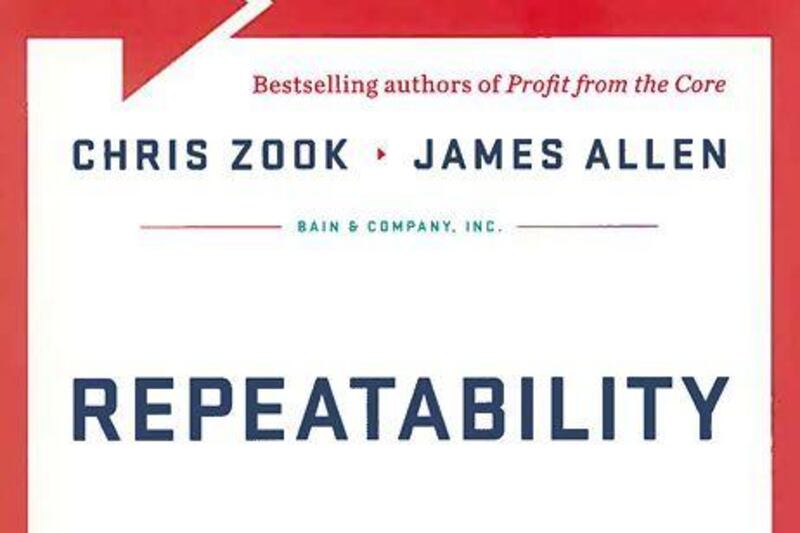The world is surely overpopulated with books promising the secret formula for creating a successful and money-spinning business. Yet the flow is unceasing.
Some are, of course, better than others. They are varied in their approach too, ranging from the mysteries of management in parable like "Who moved my cheese?" to the simple genius of pointing out the obvious such as Malcolm Gladwell's The Tipping Point.
Repeatability: Build Enduring Businesses for a World of Constant Change falls into the latter category. Through a combination of real world examples and textbook-like analysis, its authors Chris Zook and James Allen - leading lights at the management consultants Bain & Co, Mitt Romney's old stomping ground - argue that the best and most enduring businesses are able to replicate their success over and over and that this formula can be mastered by minding three important principles.
These are firstly that stellar company performance can be linked to having a well-differentiated core business, ie not relying on a single product but not so wide as to dilute the power of what the company does well. Secondly, that a successful firm knows from its top to its bottom, exactly what it stands for, what its core values and criteria are that inform crucial decision-making, what the authors call "Clear Nonnegotiables".
Finally, that enduring success is built on well-developed systems to drive learning and continuous improvement.
Companies that master these principles can expect the reward of annual growth and profits in perpetuity.
They make interesting points marked by real-world case studies.
The examples they choose to illustrate their ideas are the best parts of the book and are the most readable, from the Dabbawallas of Mumbai to Sweden's Ikea.
"Only Ikea, it seems, knows how to imitate Ikea", they observe dryly. While the more in-depth analysis exploring the three principles can be a little text book-esque, filled with tables and graphs.
Unsurprisingly for consultants they argue that management decisions are far more important factors in the success of a business than, say, the sector or market that it operates in. And the suspicion lingers that this is little more than a marketing exercise in selling the brilliance and essentiality of Bain & Co's services.
However, this does not diminish the worth of what the authors are saying.
malrawi@thenational.ae
Sound advice blended with soft sell
The Life: The world is surely overpopulated with books promising the secret formula for creating a successful and money-spinning business. Yet the flow is unceasing.

Editor's picks
More from the national





